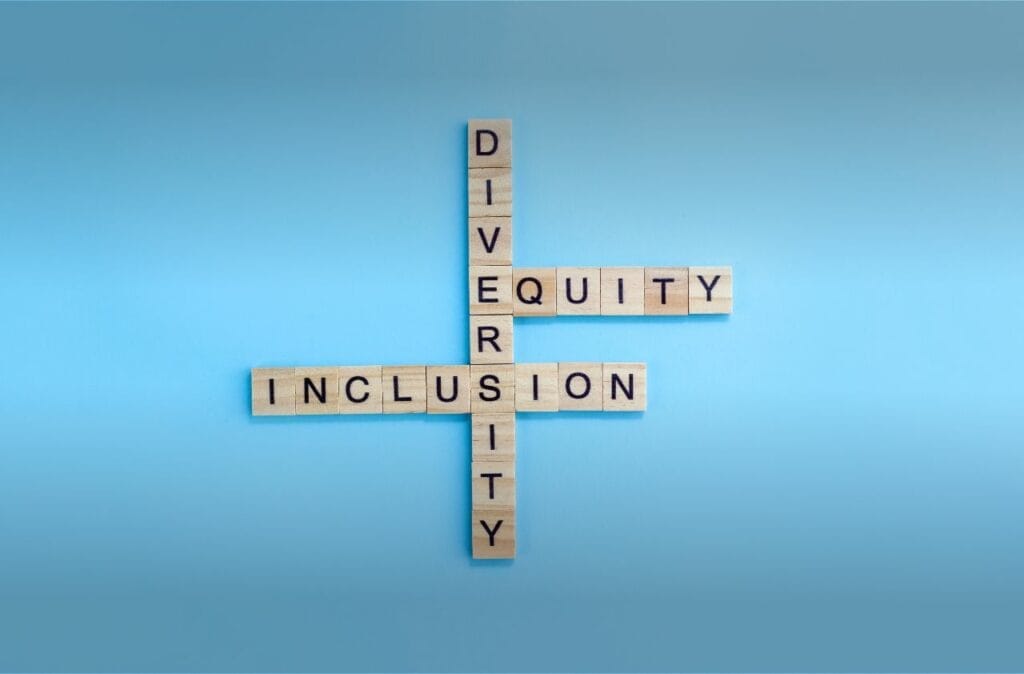If the vast UW System Diversity, Equity and Inclusion effort — which costs approximately $32 million biennially — is so necessary, why is it such a failure?
The stated mission of the UW System’s Office of Equity, Diversity & Inclusion is so general as to be meaningless.

The office, according to its website, is supposed to implement a “strategic vision that cultivates inclusive and supportive learning and working environments” and ensure that there are resources to “improve the human condition for all, especially those of diverse racial and ethnic identities, nationalities, social and economic status, sexual orientations, gender identity/expressions, ages, physical and mental abilities, religious beliefs or political ideologies.”
UW-Madison is, of course, the flagship campus of the System. Its Division of Diversity, Equity & Educational Achievement’s priority is a little more specific and includes increasing “access for underrepresented minorities in STEM” and eliminating “the achievement gap between majority and underrepresented students.”
So let’s start there.
The ultimate measure of achievement — and I would argue the only one that really matters when you’re a student with huge tuition bills and a yearning for a job — is whether you graduate.
DEI programs are supposed to help a variety of “underrepresented” students, but let’s focus on Black students today. The low number of Black students graduating with a bachelor’s degree at UW-Madison is a travesty — and, despite an enormous DEI bureaucracy, it’s not getting better.
According to 2022 US Census figures, 6.6% of Wisconsin is “Black or African-American alone.”
In the 2021-22 school year, 146 Black students earned a bachelor’s degree at UW-Madison. That’s less than 2% of the 7,460 students who earned a degree at that campus that year. The number of graduates fluctuates a little year to year but that is only three more Black students than the 143 who earned a bachelor’s degree in 2011-12.
UW-Madison is also failing to successfully bring many Black students through STEM disciplines.
STEM stands for science, technology, engineering and math and encompasses a variety of areas. Only six Black students earned a bachelor’s degree in Computer and Information Science and Support Services, for example; 16 in Engineering; 19 in Biological and Biomedical Sciences; four in Math.
Madison is by far the largest campus in the System, but typically enrolls and graduates only about one-fourth of all UW students. System-wide, including Madison, 26,529 students earned Bachelor’s degrees during the school year 2021-22. Approximately 2.4%, 645, were Black. That’s up from 534 in 2011-12 so, to be fair, there has been an increase from a very low number.
Madison wasn’t the only campus to confer very few degrees on Black students in 2021-22.
- At Eau Claire, only 19 of 2,127 students who earned degrees were Black
- At Green Bay, only 18 of 1,240 were Black
- At La Crosse, only 16 of 1,971 were Black
- At Parkside, 47 of 716 were Black
- At River Falls, only 9 of 1,162 were Black
- At Superior, a mere 2 of 416 were Black
The DEI apparatus is vast. UW-Madison’s Division of Diversity, Equity & Educational Achievement’s website lists no less than 96 staff members.
LeVar Charleston, the deputy vice chancellor for diversity and inclusion, did not return either a phone call or an email that asked whether those 96 positions are all full-time and serve only at UW-Madison.
I also asked him whether it is fair for me to conclude that DEI programs are not working at UW-Madison given the numbers.
He didn’t respond to that either.
But the answer is clear.
Shannon Whitworth, executive director of the Free Enterprise Academy at Milwaukee Lutheran High School and member of Badger Institute’s Board of Directors, penned a piece recently that explains how DEI programs actually do more harm than good:
DEI also works against students by actively encouraging the students to separate themselves from the rest of the student body, with segregated activities, curriculum and housing. This imposed isolation denies Black students the opportunity to advance their academic and social education cooperatively, just like any other students on campus.
This creates a culture of anti-intellectualism, segregation and animosity, which serves no one except the bursar. Is it any wonder why so many Black students don’t finish?
An assistant vice chancellor of University Communications did respond to the email I sent to Charleston — sort of. In addition to giving me a link to graduation data, he directed me to “our public records portal for staff questions: https://compliance.wisc.edu/public-records/.”
(I guess he thought I was staff for some reason. The Badger Institute is not, needless to say, part of the UW System. But if I were staff today, I’m guessing I wouldn’t be tomorrow.)
“A number of other highlights are posted online, but I’m happy to direct you to other metrics if you’d like to be more specific: https://diversity.wisc.edu/issues/,” he also wrote.
Republicans are tired of funding DEI programs in the UW System, and — predictably — they are being accused of racism. Assembly Speaker Robin Vos has responded by labelling DEI “Division, Exclusion and Indoctrination.”
Those last two letters might also stand for “Expensive” and “Ineffective.”
Mike Nichols is the President of the Badger Institute. Permission to reprint is granted as long as the author and Badger Institute are properly cited.
Submit a comment
"*" indicates required fields




